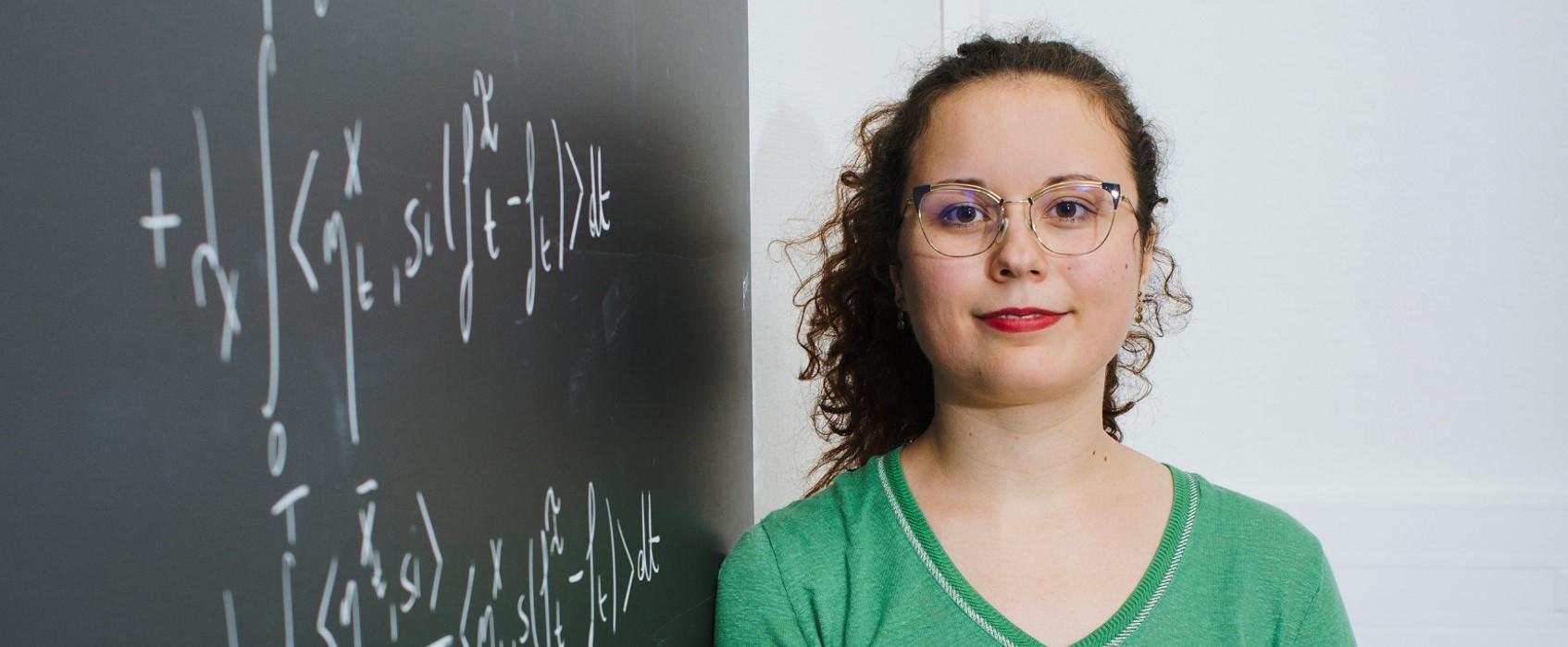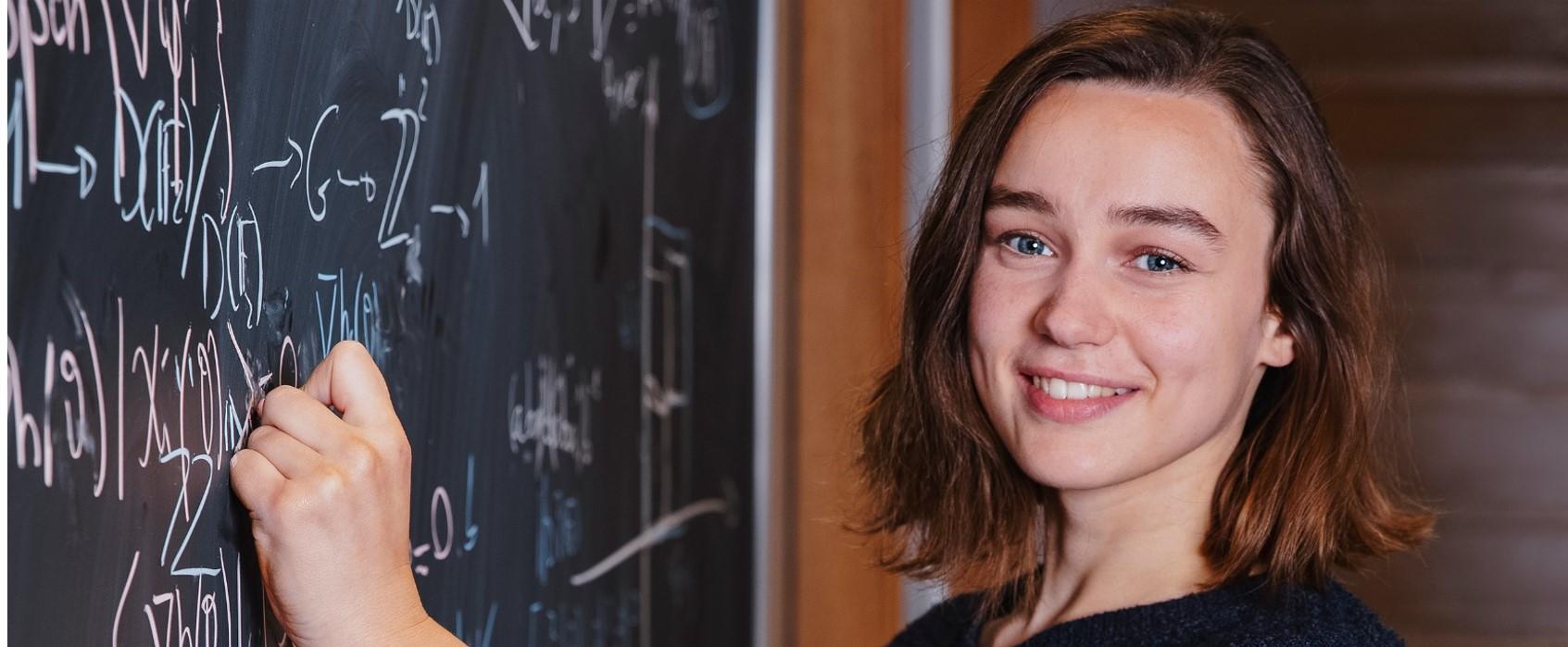Four Inria researchers win L’Oréal-UNESCO For Women in Science Rising Talent Award
Date:
Changed on 04/11/2024

Solenne Gaucher, Élodie Germani, Madeleine Kubasch and Sibylle Marcotte might all have taken different paths to get where they are today, but what they all have in common is that they have spent their early years as researchers with Inria project teams at the Lyon, Saclay and University of Rennes centres. Each year, the L'Oréal-UNESCO For Women in Science Rising Talent Award is given to 35 young female PhD students or postdoctoral researchers, the goal being to support and encourage young women in scientific research.
Solenne Gaucher
“Developing fair and inclusive algorithms”
A postdoctoral researcher at ENSAE Paris, with the project team FairPlay (Inria Saclay, ENSAE Paris, Criteo) at the CREST laboratory
Élodie Germani
“Improving medical imaging through the use of artificial intelligence”
A postdoctoral researcher at the University of Bonn and a former PhD student with the project teams EMPENN (Inria, CNRS, Inserm, University of Rennes) and LACODAM (Inria, University of Rennes, INSA Rennes and Agro Campus Ouest), both joint undertakings involving the University of Rennes and the IRISA laboratory
Madeleine Kubasch
“Using mathematics to analyse the spread of epidemics”
A postdoctoral researcher at the École Polytechnique and a former PhD student with the project team Merge (Inria Saclay, École Polytechnique, CNRS) at the CMAP laboratory
Sibylle Marcotte
“Improving our understanding of machine learning tools”
PhD student at the École Normale Supérieure - PSL with the project team OCKHAM (Inria Lyon, ENS de Lyon, Claude Bernard University Lyon 1) at the LIP laboratory
The varied paths they have taken and the fascinating fields they operate in are testament to the wide range of opportunities on offer to women who opt for a career in science, not to mention the benefits their work stands to have for society as a whole.
Alexandra Palt, vice-president of the L’Oréal Foundation, perhaps puts it best: “how can we ignore the invaluable contribution made by these women towards solving the major challenges of our era?” This is what this Rising Talent Award was created to do: to give visibility to a generation of women in science who are tackling some of the main issues of our time. In the category “Artificial Intelligence and Data for the Common Good”, Solenne Gaucher’s work involves developing fair and inclusive algorithms, while Élodie Germani is seeking to improve medical imaging through the use of artificial intelligence. As for Sibylle Marcotte, her aim is to improve our understanding of machine learning tools, which are making their presence felt across our societies. Finally, Madeleine Kubasch was awarded in the category “Analysis, Forecasting and Prediction” for her work in using mathematics to analyse the spread of epidemics.
All four were unanimous in saying that to be awarded this prize by such a prestigious panel was “a source of pride” and “an honour”, while serving as “recognition of [their] research and the impact and relevance of [their] research topics”, as Solenne Gaucher puts it.
Verbatim
I’ve often suffered from impostor syndrome; you don't know if what you're doing is really important. This prize gives me greater confidence when it comes to results. It also gives us a lot of visibility in the eyes of the wider public and the scientific community.
Auteur
Poste
Postdoctoral researcher at the University of Bonn and a former PhD student with the project teams EMPENN and LACODAM
But it’s not a one-way street, and Sibylle Marcotte greatly enjoyed the opportunity to meet the other winners.
Verbatim
One of the other scientists is going off to the Southern and Antarctic Lands to study marine wildlife - while I’m stuck behind my computer! It's great getting to meet female scientists who are excelling in all these different disciplines.
Auteur
Poste
postdoctoral researcher at the École Normale Supérieure - PSL with the project team OCKHAM
For each of the four researchers, there is an air of inevitability to them being where they are right now. Sibylle Marcotte and Solenne Gaucher have “always leaned more towards maths” or science, and both came from families that supported them with this. But some prefer the road less travelled: Élodie Germani started out in medicine before realising she was “geared more towards the theoretical than the practical” and that she was better suited to research. Madeleine Kubasch began her studies with a joint degree in Biology and Mathematics, during which time she discovered that although she was very interested in biology, she was a mathematician at heart.
Her research now straddles the two disciplines, having initially focused on epidemiology before then moving on to biodiversity in agriculture. She is also considering branching into sociology to explore issues such as the spread of fake news. The same goes for Élodie Germani, who is also working in the medical field, and Sibylle Marcotte, who realised that her work “involves forging ties with disciplines other than mathematics” and who would like to continue in this direction. Finally, Solenne Gaucher’s work on the issue of algorithmic fairness sees her confronted with tangible real-world problems.
Each in their own way, these scientists have shown that scientific research is rooted in public life and is designed to serve the common good.
Verbatim
I love this job because it combines curiosity with scientific rigour while allowing me to do my bit for society, not just within the scope of my research, but also through scientific outreach and encouraging women to take up careers in science.
Auteur
Poste
Postdoctoral researcher at the École polytechnique and a former PhD student with the project team Merge
The four winners all agree that they have a shared responsibility, which this prize recognises: being high-profile women in what is still a male-dominated environment. As Solenne Gaucher points out, the underrepresentation of women “is even more pronounced in mathematics than in other scientific disciplines”. In 2024 only 22% of PhD students in mathematics were women - a figure that is even lower than 10 years ago. But these four scientists know only too well how big a role the representation of your peers plays when it comes to the choices you make. “All of my maths teachers throughout secondary school were women, and I later realised that this made the presence of women in science seem normal to me”, says Sibylle Marcotte.
On the other side of the coin, Solenne Gaucher noticed women becoming scarcer and scarcer as she progressed in her education.
Verbatim
We need to reach out to women of all ages as they are turning away from maths at all stages of their education.
Auteur
Poste
Postdoctoral researcher at ENSAE Paris with the project team FairPlay
This is what makes the initiatives these four researchers are involved in so important, whether it’s the Girls in Maths and Computer Science events (Rencontres des Jeunes Mathématiciennes et Informaticiennes - RJMI) run by Animath and Femmes et Mathématiques and hosted by Inria, the A Scientist in Every Classroom programme, or the speed dating and mentorship programmes run by Femmes et Mathématiques.
As Madeleine Kubasch puts it, this prize is also an invitation “to continue the work we are doing for young women in science, and mathematics in particular.”



